Insulation Tips
Environmentally Friendly Insulation Options for Australian Homes
If you’re interested in reducing your household’s environmental impact, investing in insulation is one of the best things you can do!
In this guide to environmentally friendly insulation in Australia, we’ll cover how insulation helps reduce emissions and the best insulation materials for the environment. We’ll also introduce you to Knauf Earthwool, one of the greenest insulation options available.
Head over to our comprehensive insulation guide if you have other insulation questions that need answering.
ALSO READ – The Ultimate Insulation Questions & Answers: FAQ
Reduce your household’s carbon footprint with home insulation!
A well insulated home uses less energy to maintain a comfortable indoor temperature. Lower energy consumption means less fossil fuel is burned and less pollutants are produced into the atmosphere such as sulfur dioxide and carbon dioxide.
To maximise the environmental benefits of insulation, it’s important to insulate the entire home including the ceiling and roof, internal and external walls, under the floors and between floors of a multi-storey home.
If you are installing insulation, consider upgrading to a higher R-Value. The higher the R-Value, the more effective the material is at slowing down heat loss and gain. With higher R-Values, your home will stay more comfortable temperature year round and using heating and cooling appliances will be much more efficient.
Insulation materials – Are they good for the environment?
Insulation products are made from a wide range of different materials including:
- Glasswool (recycled glass materials)
- Polyester (recycled plastic materials)
- Rockwool (crushed rock materials)
Glasswool is predominantly made from recycled glass materials such as flat glass sheets and glass bottles. The rest of the glass is sourced from sand which is an abundant resource. The glass is crushed and spun into fibres which are bound together to form glasswool batts or rolls. If glasswool products are left intact, they can be recycled at the end of their life.
Polyester batts are made mostly from recycled plastic materials such as plastic bottles. Like glasswool, polyester can be recycled at the end of its life. Polyester insulation has no breathable particles, making it an excellent choice for people with asthma or allergies.
Rockwool is made from crushed rock particles and stone dust, sometimes containing up to 95% recycled materials. Rockwool insulation has extremely high fire ratings and will help slow down the spread of fire.
Manufacturing processes for insulation – Are they sustainable?
If you want to choose more sustainable insulation products for your home, consider the manufacturing processes and the strategies that insulation brands have in place for minimising their environmental impact.
The good news is, many insulation companies have revised their manufacturing processes and set targets to reduce energy and resource waste. Look out for zero carbon initiatives and long term strategies when researching the environmental responsibility of insulation manufacturing companies.
One of the leaders when it comes to hitting sustainability targets is Knauf. At Pricewise Insulation, Knauf Earthwool is one of our most popular products for people who want environmentally friendly insulation in Australia.
Case Study – Knauf Earthwool Insulation
Earthwool insulation batts are made from recycled glass using advanced ECOSE Technology. Unlike traditional glasswool products, Earthwool is soft to touch and has virtually no itch factor. Earthwool batts are naturally brown in colour and can be used throughout the home to improve energy efficiency and create a comfortable home environment.
What makes Knauf stand out is their innovative technology and processes which are kinder to the environment. Knauf Earthwool Insulation has received a GreenRate Level A from GreenTag, an independent green product certification program.
Video: Sustainable Home Insulation
Reasons why Knauf Earthwool is one of the most environmentally friendly insulations in Australia include:
- Lower embodied energy compared to traditional glasswool insulation
- Made from up to 80% recycled glass materials
- Glass fibres are binded using a sustainable, bio-based binder instead of petroleum-based chemicals
- No nasty chemicals have been added such as phenol or formaldehyde
- Naturally brown colour – no artificial colours added
- Highly compressed during packaging which saves on transport costs and packaging waste
As a company, Knauf is pushing for long term solutions that reduce their environmental impact. They have been working towards carbon neutrality since 2009 and have invested a wide range of measures to decrease their carbon emissions such as using heat exchangers to recycle waste heat in their plastermill.
Where to buy Knauf Earthwool and other environmentally friendly insulation in Australia?
We supply a huge range of insulation products at Pricewise Insulation. Whether you’re building a new home, renovating or looking to top up your ceiling insulation – we’ve got solutions to make your home more environmentally friendly and comfortable all year round. Browse our products or get in touch with our friendly team today.

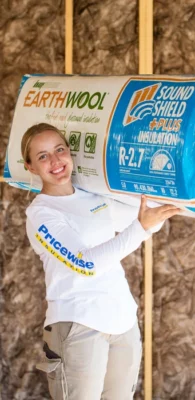
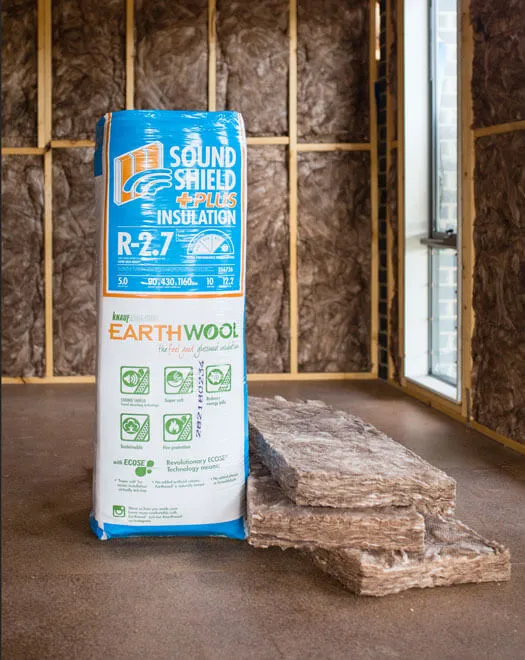
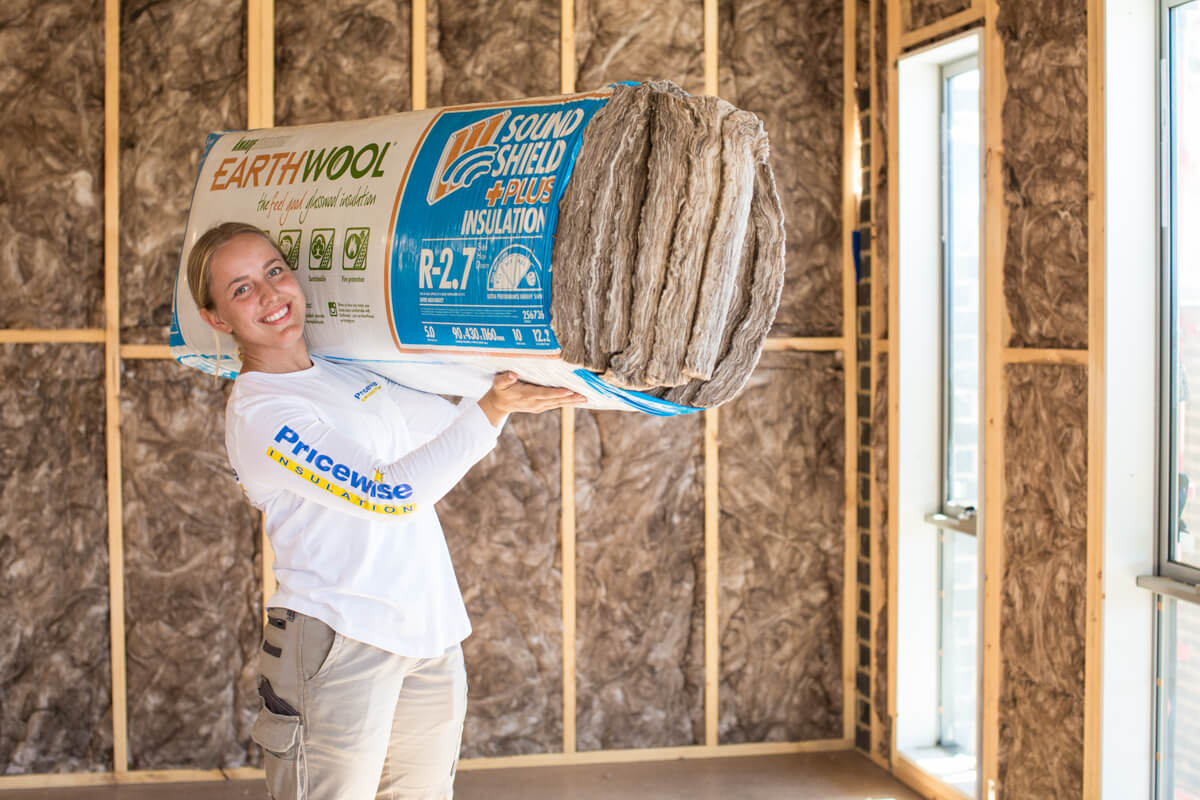
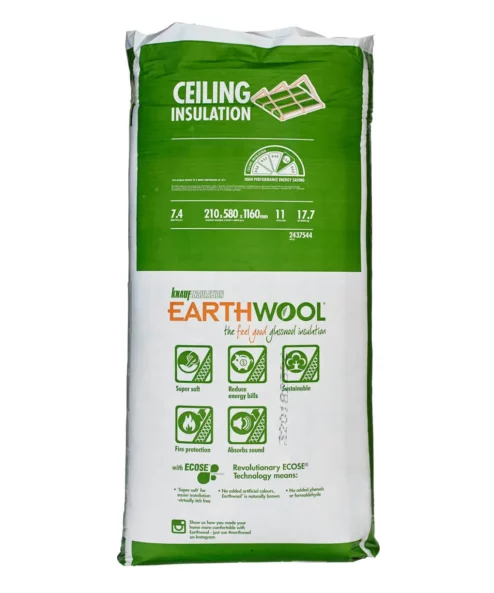
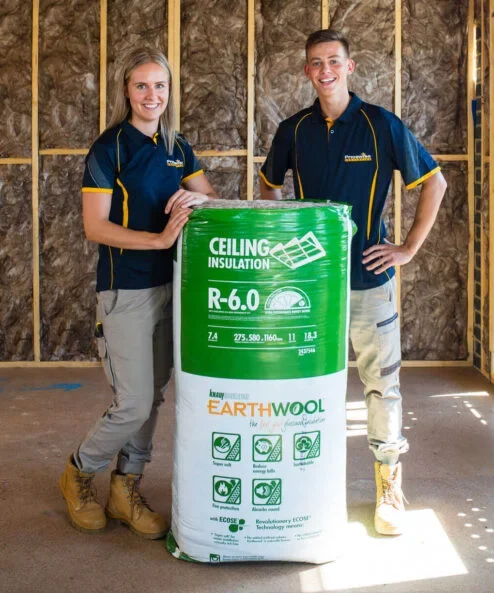
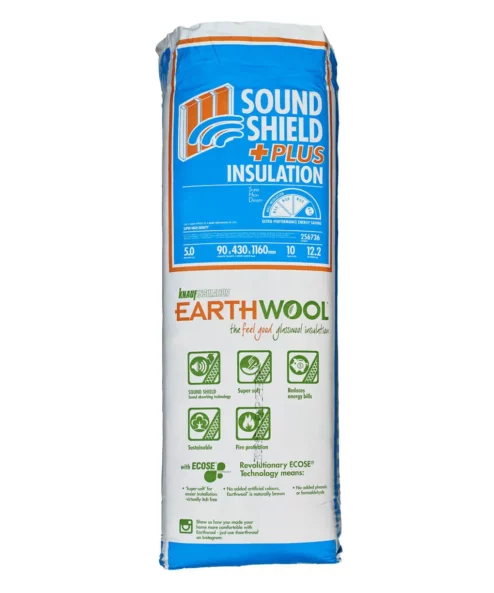
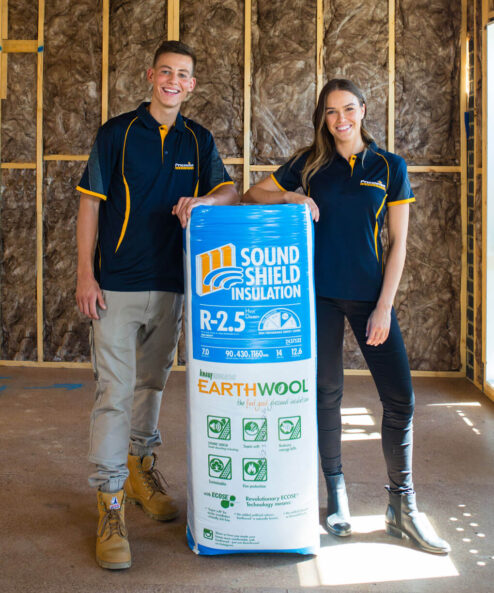
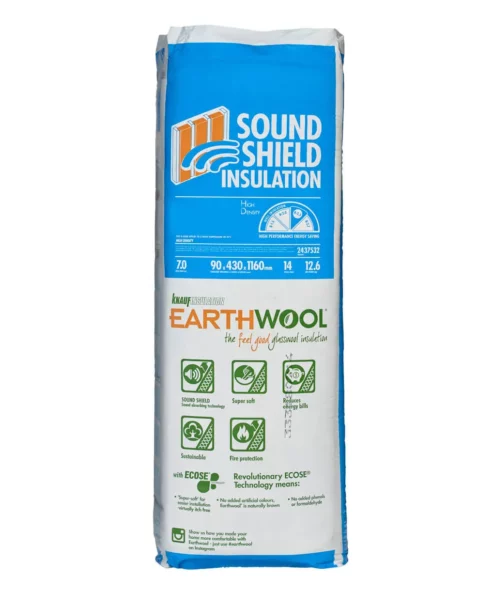
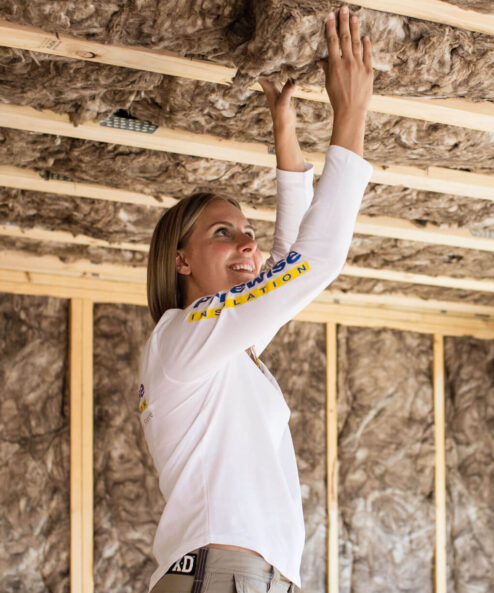
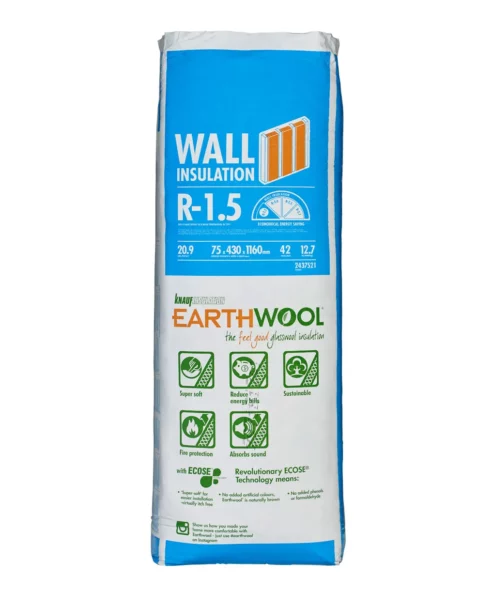
Hi Can you tell me what I can use against a ceiling to stop condensation dripping water.
Hi Joseph,
Thanks for your question. If you are trying to prevent water from dripping from the metal roof to the ceiling below, then you could look at retrofitting a product like Kingspan Air-Cell Insuliner to the underside of the rafters (if there is no existing roofing blanket on the underside of the roof). Feel free to contact our team on 1300 729 639 or email sales@pricewise.com.au if you have any further questions.
Cheers,
Christa